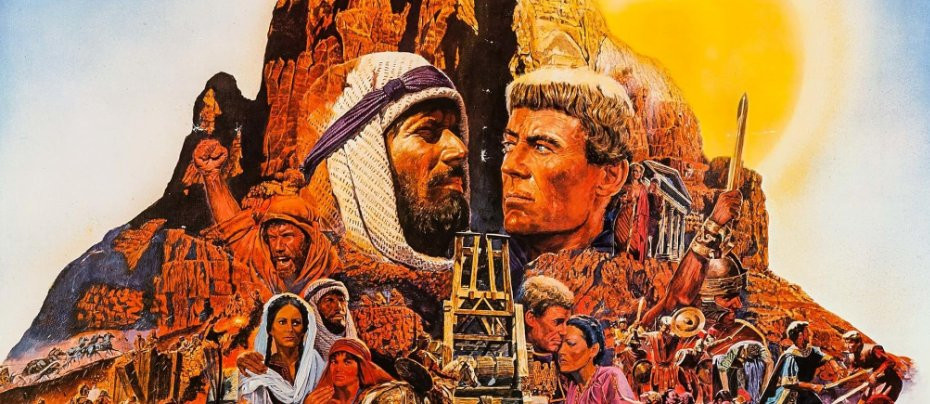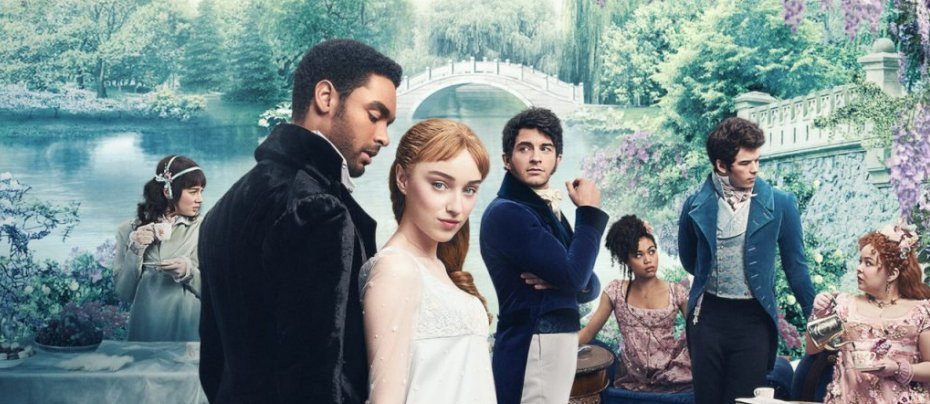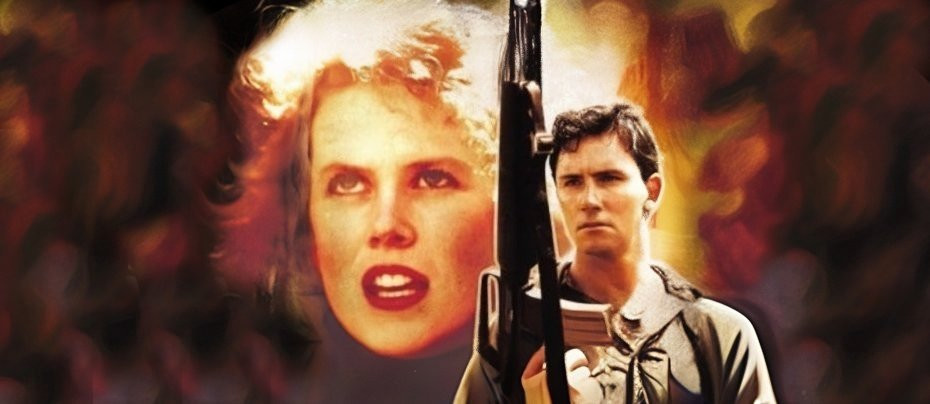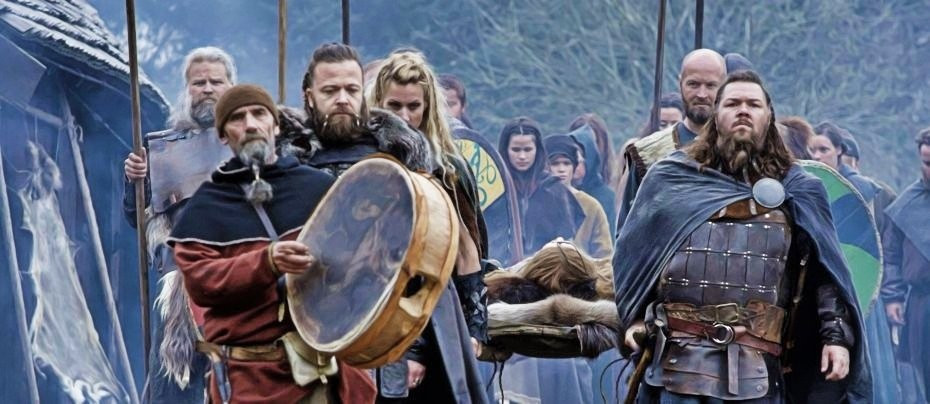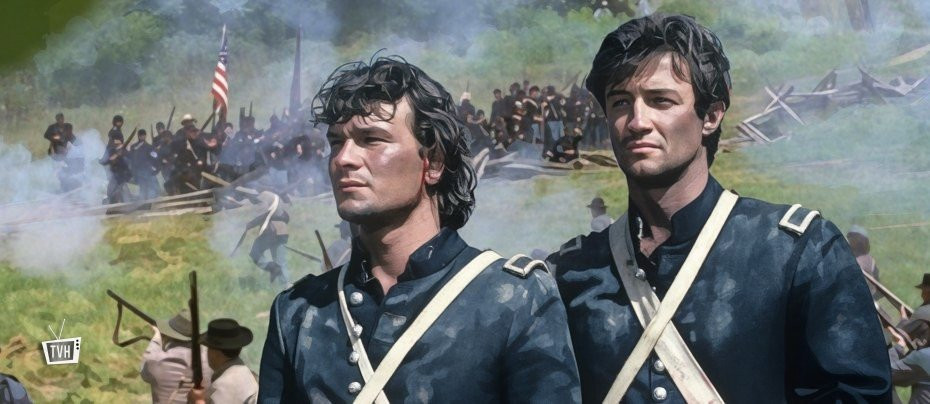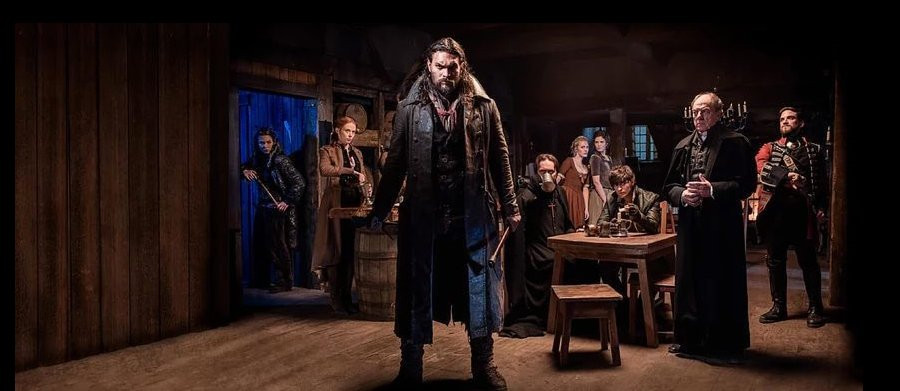
Frontier
2016 - CanadaReview: John Winterson Richards
There is a great tale to be told here. Most of what is today Canada, a huge tract of land, was opened up by a handful of entrepreneurial trappers and traders. In doing so, they proved adept at playing the Great Powers of the 17th and 18th Centuries, the United Kingdom, France, and, later, the United States, off against each other. They built a new nation, but - generally speaking - without the large scale massacres of the indigenous population or the endemic state sponsored corruption, as seen without too much exaggeration in Hell on Wheels, that characterised the more celebrated opening of the Western Frontier by their immediate neighbours to the South.
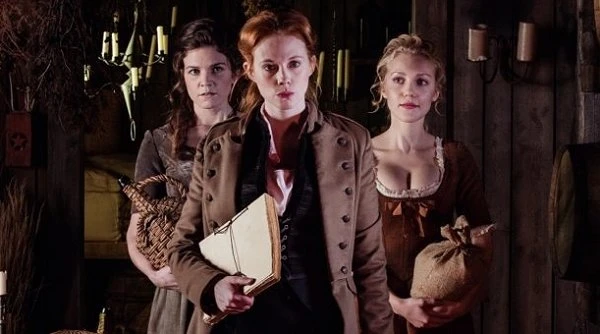
Canada can show the United States how it should have been done. This is not, however, a good business proposition when the United States is most important market for English language television drama. Instead the producers of Frontier try to give American viewers a cut price version of their own - famously inaccurate - founding mythology of plucky locals beating arrogant and unrealistically incompetent British Redcoats.
They had a perfect role model to hand in Black Sails. It is hard to overstate the influence of the recent pirate show on Frontier. It is obvious from the start in its title sequence, which mimics the discordant music and use of models from Black Sails quite shamelessly.
Indeed, Frontier is practically a pastiche of Black Sails from start to finish, except that, instead of the open ocean and the clear blue skies of the Caribbean - actually South Africa, where Black Sails was filmed - Frontier gives us the darker landscapes of Canada and the United Kingdom.
This might still have worked, because there was much about 'lack Sails that was commendable. Unfortunately, the producers of Frontier seem to have made a list of the sillier aspects of the pirate drama and copied them all: a "hero" who is by any objective standard; a brutal serial murderer but whom we are supposed to forgive because of his backstory; feisty 21st Century feminists in the 18th Century; hours of complicated double dealing; and, of course, those plucky locals beating arrogant and unrealistically incompetent British Redcoats.
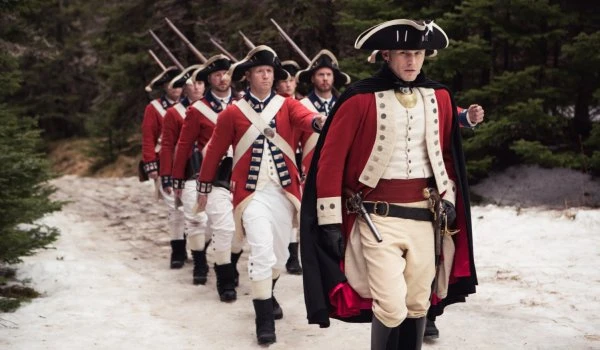
None of these things is true. Commercial reality dictates that historical drama will always put drama before history, but when it becomes positively anti-historical, it can be dangerous.
Anti-British prejudice is the last "acceptable" racism in television drama - even in Britain. Of course, part of the price of building the Greatest Empire the World Has Ever Seen is becoming a race of authority figures and therefore natural villains. It must also be said that even those who feel that it was ultimately, on balance, a more benevolent force in human history than malevolent, must admit that one cannot build the Greatest Empire the World Has Ever Seen without getting one's hands dirty.
So the British were indeed often ruthless, greedy, and violent, as they are depicted in Frontier, but it must also be said that they could also be well-meaning, far-sighted, and adaptable, and without them Canada would not have developed as it did. The early Canadians turned to the British and stayed loyal to them because they preferred them to the French and later the Americans. Nowhere is this suggested in Frontier.

More to the point, neither does one build the Greatest Empire the World Has Ever Seen by being as incompetent as the British are depicted in Frontier. Historically the best infantry of the time after the Prussians, here the Redcoats become Red Shirts in the 'Star Trek' sense - complete with the level of marksmanship associated with Imperial Stormtroopers in 'Star Wars.'
Instead of volley firing as they were trained, which would have ended the whole series very quickly, they charge at our protagonist and his associates one at a time so that they be slaughtered easily. This is, of course, a common complaint about film and television fight scenes, but it stands out in Frontier because there is nothing more accurate to set against it.
The other last remaining "acceptable" prejudice is Anti-Catholicism. The old disreputable "Black Legend" is in on open display in Frontier in the form of a drunken priest and sex trafficking nuns. Even those, including this reviewer, who are not Roman Catholics should be aware of the positive contribution of Roman Catholic missionaries to the early exploration and development of Canada, and to the establishment of such rudimentary welfare systems as existed. Cases of undoubted abuse in Roman Catholic orphanages must always be put in the context of those orphanages existing because Roman Catholic Orders were usually the only people trying to do anything at all for orphaned or abandoned children in many places.
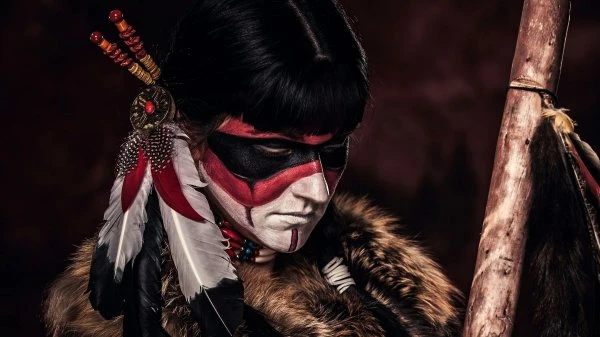
This lack of balance gives a wrong view of history which can be politically important when voters have no real knowledge of context beyond the vague impressions they might have picked up from television made for entertainment. This is a truth well known to, and exploited by, committed propaganda experts, so mainstream producers need to be more responsible.
The Frontier cast goes some way towards making up for the deficiencies in the script - or rather some of the cast do. There is a wide range in the quality of acting. Some performances are truly bad and many of the accents unbearable. Yet there are a handful of actors who do emerge with credit from the project.

The whole thing is basically a vehicle for Jason Momoa, marking time between Khal Drogo in Game of Thrones and mega-success as Aquaman, and as such it works well for him. He had already proved a surprisingly versatile actor in the lead of a misjudged "reboot" of 'Conan the Barbarian' and as a scene-stealing villain in 'Bullet to the Head' opposite Sylvester Stallone. He used Frontier as the opportunity to hone his skills as a leading man to good effect, making a poorly written character compelling by sheer force of personal magnetism.
It is not his fault that his rebel without a proper cause, murderous trapper Declan Harp, still makes absolutely no sense as a character. At least Momoa succeeds in distracting us from how irrational and illogical he is.

The accomplished veteran Alun Armstrong seems to enjoy himself as the over the top villain Lord Benton, and gives us a lot of enjoyment in the process. Frontier would have been a better show if we had seen more of him - and if he had been given better lines. In the end, Benton was just one more incompetent British authority figure, which was a waste because Armstrong showed that he could have been so much more.
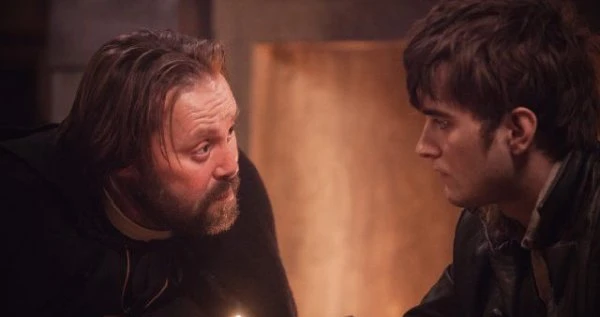
Other familiar faces appeared all too briefly. The talented Christian McKay tried hard to make the drunken priest more interesting than he was, but in the end the character went nowhere. Temuera Morrison and Gary Lewis were brought in during the third and final season but the writers seemed to have no idea what to do with these skilled, well established, and potentially game-changing players, and rather threw them away.
Among the less well known, mostly Canadian, members of the cast, Greg Bryk stands out as a charming psychopath and Paul Fauteux makes the best of the underwritten role of Rivard, a token reminder of how much the fur trade was largely the invention of Frenchmen and French-speakers. Demetrius Grosse also rises above his material as Charleston, a slave freed by Harp whose story never really develops.

The failures of the writers in respect of both story and character are all the more frustrating because the production values of the show in other departments are often very good. The sets are nicely dressed and furnished - if there are anachronisms, it is because the show kept its precise date deliberately ambiguous - and there is some fine location work. The photography of some scenes set in the frozen North is particularly stunning.
If anything, we could have done with a bit more of the scenery. That really says it all.
It could have been something special, but in the end, Frontier is another of those annoying shows that had a great basic concept and a fair amount of money to spend but wasted them on poor scripts. The moral of the story is that no investment in good actors, good locations, good sets, and good camerawork will avail unless there is first investment in good writers.
Yes, there is a great tale to be told here - and it remains to be told, because Frontier never told it.
About the reviewer: John Winterson Richards
An experienced freelance writer as well as a consultant, John Winterson Richards has been commissioned and paid to write over 500 articles in print and online. He was a regular guest on the Mind Your Own Business podcasts and a major contributor to that website's blog.
He is the author of 'The Xenophobe's Guide to the Welsh' and the 'Bluffer's Guide to Small Business.'
Under the name Charles Cromwell, John is the author of three novels, 'Young Herod,' 'Seven Days in Jerusalem,' and 'Leonardo Investigates: Death in Pisa.' All can be downloaded from Amazon.
He is the co-writer, with Andrew Harman, past Head of History at Filton High School, of 'The Context of Christ: the History and Politics of Judea and Rome, 100 BC - 33AD', also available on Amazon Kindle
Seen this show? How do you rate it?
Seen this show? How do you rate it?
Published on January 22nd, 2020. Written by John Winterson Richards for Television Heaven.


